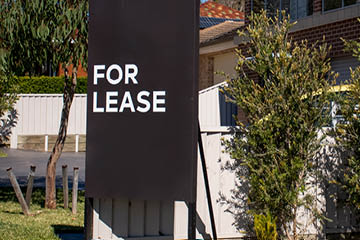
Changes are coming to Strata Laws in NSW
October 10, 2024
Order on the Agent
November 8, 2024
Changes are coming to Strata Laws in NSW
October 10, 2024
Order on the Agent
November 8, 2024
Changes to Rental Laws in NSW

The most important to note first, is that whilst so many people are talking about the changes to rental laws in NSW – this is not yet law. On 15 October 2024, the Residential Tenancies Amendment Bill 2024 was introduced into parliament. This Bill now needs to pass through NSW parliament, be adopted by NSW Fair Trading and then introduced. It is expected that the new laws will come into effect in early 2025.
At this stage, we can certainly read the Amendment Bill at – https://legislation.nsw.gov.au/view/pdf/bill/6a0556b0-56ba-4a5f-8345-f93ef39735d6 and consider how this will affect agency practices on a daily basis. However, until the final legislation is released, none of the proposed changes are in effect and the current legislation is applicable.
As soon as the legislation is finalised, ACOP will provide detailed information for agents in relation to the impact of these in terms of policies and procedures and the implementation of the legislation into the services offered through your agency.
The Amendment Bill primarily focuses on rent increase caps, no ground termination, prescribed grounds and new pet reforms.
The Amendment Bill is proposing significant changes to the rental laws in NSW. In summary, the major changes that are proposed include:
Termination notices:
- It is proposed that no ground termination notices for periodic agreements will be abolished and that prescribed grounds will need to be provided for a landlord to terminate a periodic or fixed term tenancy.
- It is proposed that “tenancy exclusion periods” will be introduced where it is an offence for a landlord, who issues a termination notice on a prescribed ground, to relet a property within a designated timeframe.
- It is proposed that changes will be made to termination notice periods.
Pets:
- It is proposed that tenants will be permitted to keep pets in rental properties if they follow a set process, including a set period for landlords to respond to a request from a tenant.
- It is proposed that landlords will only be permitted to refuse consent on certain specified grounds, such as overcrowding of animals, unsuitability of the property, potential damage that would cost more to fix than the rental bond, where a landlord lives at the rental property, legal restrictions and where a tenant refuses to agree to the landlord’s reasonable conditions.
- It is proposed that consent from a landlord may be granted subject to “reasonable conditions”, which include preventing certain types of animals to be kept indoors, end of lease professional carpet cleaning and professional fumigation, and type of animal and type of premises.
- It is proposed that landlords will not be able to implement “unreasonable conditions” such as increasing rent or applying a rental bond or other form of security for the pet.
Other proposed changes:
- It is proposed that rent will only be able to be increased once every 12 months, regardless of the type of lease (fixed or periodic term).
- It is proposed that tenants will need to be offered Centrepay and “approved electronic bank transfer methods” as options for rental payments.
- It is proposed that landlords or agents will not be able to charge a fee to prospective tenants for background checks or the preparation of a lease.
There has been much discussion in the industry about the advantages and disadvantages of this proposed legislation, and the impact that it will have on investors and their appetite for purchasing property as an investment option. There is no doubt that whatever finally is passed through parliament and approved for introduction, will have major effects on the property industry in NSW.
|
You will note that I have used the term “it is proposed” many times throughout this Newsletter. I have done this, as you do NOT need to be making changes to your policies and procedures until the legislation comes into effect. Wait for the official release of the legislation and we guarantee you that we will provide you with the relevant and essential information in order to implement the changes within your agency. |
Complete your property training with ACOP.

